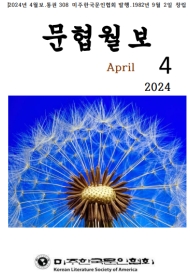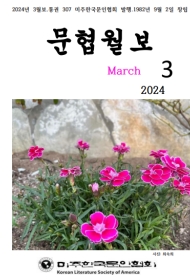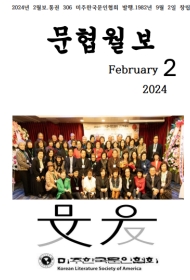Persona
1966, Director & Writer: Ingmar Bergman
=======================================
Wolran Kim
December 2012
I had seen this movie a few years ago, and chose this again in the list of Top 100 Foreign Films without hesitation. I wanted to look into my identity that I might have missed through this film. We must pick up and hold our emotions that are piled up or dumped as residue in the corner inside our minds. The term, Persona, was created by Carl Jung (1875-1961, originator of Analytic Psychology), and was derived from the Latin word which means mask of Etruscan clown.
According to Jung, individuals can reflect on their role in their lives and bear interrelationships in the world because of the term persona. People are also able to adapt to the demands of society and reach a compromise between society and a unique individual philosophical structure because of the term persona. Persona refers to a separate entity with ration and volition in terms of theology. Therefore, it points to the Trinity – Father of God as the first persona, Son of God as the second persona, and the Holy Spirit as the third persona. Generally, persona came into use to point to the human individual who is the actor of the play of life, and is also a projected personality to others.
This film is directed by Ingmar Bergman (1928-2007) who is Swedish, in 1966. Bergman was born in Uppsala, Sweden, and was strictly disciplined in the house of a pastor. This environment drove him to skepticism of religious beliefs through quarrels and misunderstandings with his parents. He spent his adolescence in theater, and condensed his cinematic world as a trilogy of Silence of the God (Silence, Through the Dark Glass, and The Winter Light) in the early 1960s. God was just silent in uneasy social conditions and historical contexts of Europe where they suffered with two World Wars. Surprisingly, in his memoir in 1996, he mentioned that the trilogy was just a concept he came up with while drunk, and consisted of baseless assertions which he could not be reminded of when sober.
But his work that had tracked the dynamic relationship between the lives of individuals and faith obstinately caused a big impact engaged with Existentialist philosophy. He often seemed frustrated despite of the longing for salvation from God, and was concerned about the world stained with violence and suffering in his 40 years of the film industry. His works are metaphysics written on the screen which draw new coordinates in modern history of movies. His philosophy always has been very close to human life and his theme had metaphysical techniques to identify human beings focused on God and sexual awareness.
This film is known as Bergman’s most challenging and dark drama. Persona explores a complex psychological state and one of the second trilogy with The Time of Wolves (1968) and Shame (1968), which is about the role of the artist. His attitude, obsessed with religious or psychological problems of individuals, was also anachronistic work in those days. This film, starring Liv Ullmann and Bibi Andersson, shows the essence of the classic movie with two women and the monotonous landscape of the beach in black and white. This movie draws the confusion of identity and friendship between a nurse and an ailing actress, and begins with the grotesque scenes as moments of a nightmare.
As most of the 1960s European art films are, Bergman’s Persona also assesses obscure work and is difficult to explain in the language. In fact, Bergman wanted to show this movie as written poetry with images, and the famous opening credit sequence emphasizes this point too. The baby’s hand, mimes, Tarantula, eyes, forest, steel bars, the old man’s face, projectors, and mortuary, all are abstract scenes that are close up and overlap. Crucified hands and a sheep killing also symbolize Christian images. Finally, the story begins with a little boy’s touching the face of a woman as a cold mom.
The plot is simple. A question about women’s self-identity and the role of the mother arises through a meeting of an actress, who fell into silence during the theater performances, and a nurse. A young nurse Alma takes care of an actress Elizabeth who refuses language with a mental disorder. Elizabeth never answers with any words to Alma during their stay together in a beachfront cabin which the doctor in charge owns. Then Alma confesses her secrets about abortion and orgy to Elizabeth, and finds her identity has been identified with Elizabeth. Alma, who wanted to live a stable life with marriage, discovers her oppression and a sense of guilt while she cares for Elizabeth. Elizabeth, who has sadistic pleasure from Alma, also gradually drags into Alma’s dark inner potential, and encounters it with a horrific guilt of motherhood.
The feeling after the movie is not easy. This film is a poem as was Bergman’s wish compared to most others being a novel. It is easy to get lost while we are along with the character’s facial expressions and the lines of the play on a monotonous black and white screen. A scene of the offering of a burning body in South Vietnam on TV that Elizabeth watched in the hospital room might be similar to the suffering in her spirit. South Vietnam was under the Diem dictatorship, and Diem enforced anti-Buddhist policies because he was a believer in Catholicism.
The political resistance against Buddhist ideals was expressed in a cruel way such as offering a burning body, and the American society was shocked from this horrible picture. Then America’s support was discontinued due to anti-American feelings of Vietnam and international opinion, and the Diem regime collapsed. The most painful suffering is burning to a human body. This scene expressed Elizabeth’s mental suffering when she abandoned language and became extinct.
This story shows confusion of the gap between the external self and the inner self through extreme contrast statuses of the two figures of nurses and patients. Alma and Elizabeth are finding the hidden part of their selves from each other. Alma controlled Elizabeth with her speech while her patient was speechless. But later, Alma’s reliable world-view begins to be agitated and crumbles in front of the enigmatic patient, Elizabeth. She gradually throws off her own persona. She finally peels off her mask which gave meaning, lies, identity, and self-deception to her life.
This film’s climax is the scene when the two women wear the same black dress and sit across from each other. Their faces are mixed and finally become one face. Alma is realizing another face of herself while she blames Elizabeth’s negative perspective of motherhood and marriage. Alma counseled her patient that Elizabeth wants to be a mother but she is afraid of losing her theater, stage, and beautiful body. Elizabeth felt guilty because she wished her child was born dead. Two women are leaving that beach but they should be faced with their egos for the rest of their lives. The film drops a curtain with the beginning scene where the little boy was touching the woman’s face.
It is difficult, just as persona is. No one lives while looking in their inner world exactly and wholly. We only try to do that. Our emotion and subconscious is an unknown scene as a dream, black hole, or intricate spider web. When I write poetry, my dog series, I pretend to be a dog who criticizes humans’ ugliness, hypocrisy, inconsistency, and greed. So often I have an illusion that I am a dog which is also humans’ toy. I have a secret admiration that I have purity as an animal. My persona who transferred my inner world jumping around here and there, is wearing pure white fur.
1966, Director & Writer: Ingmar Bergman
=======================================
Wolran Kim
December 2012
I had seen this movie a few years ago, and chose this again in the list of Top 100 Foreign Films without hesitation. I wanted to look into my identity that I might have missed through this film. We must pick up and hold our emotions that are piled up or dumped as residue in the corner inside our minds. The term, Persona, was created by Carl Jung (1875-1961, originator of Analytic Psychology), and was derived from the Latin word which means mask of Etruscan clown.
According to Jung, individuals can reflect on their role in their lives and bear interrelationships in the world because of the term persona. People are also able to adapt to the demands of society and reach a compromise between society and a unique individual philosophical structure because of the term persona. Persona refers to a separate entity with ration and volition in terms of theology. Therefore, it points to the Trinity – Father of God as the first persona, Son of God as the second persona, and the Holy Spirit as the third persona. Generally, persona came into use to point to the human individual who is the actor of the play of life, and is also a projected personality to others.
This film is directed by Ingmar Bergman (1928-2007) who is Swedish, in 1966. Bergman was born in Uppsala, Sweden, and was strictly disciplined in the house of a pastor. This environment drove him to skepticism of religious beliefs through quarrels and misunderstandings with his parents. He spent his adolescence in theater, and condensed his cinematic world as a trilogy of Silence of the God (Silence, Through the Dark Glass, and The Winter Light) in the early 1960s. God was just silent in uneasy social conditions and historical contexts of Europe where they suffered with two World Wars. Surprisingly, in his memoir in 1996, he mentioned that the trilogy was just a concept he came up with while drunk, and consisted of baseless assertions which he could not be reminded of when sober.
But his work that had tracked the dynamic relationship between the lives of individuals and faith obstinately caused a big impact engaged with Existentialist philosophy. He often seemed frustrated despite of the longing for salvation from God, and was concerned about the world stained with violence and suffering in his 40 years of the film industry. His works are metaphysics written on the screen which draw new coordinates in modern history of movies. His philosophy always has been very close to human life and his theme had metaphysical techniques to identify human beings focused on God and sexual awareness.
This film is known as Bergman’s most challenging and dark drama. Persona explores a complex psychological state and one of the second trilogy with The Time of Wolves (1968) and Shame (1968), which is about the role of the artist. His attitude, obsessed with religious or psychological problems of individuals, was also anachronistic work in those days. This film, starring Liv Ullmann and Bibi Andersson, shows the essence of the classic movie with two women and the monotonous landscape of the beach in black and white. This movie draws the confusion of identity and friendship between a nurse and an ailing actress, and begins with the grotesque scenes as moments of a nightmare.
As most of the 1960s European art films are, Bergman’s Persona also assesses obscure work and is difficult to explain in the language. In fact, Bergman wanted to show this movie as written poetry with images, and the famous opening credit sequence emphasizes this point too. The baby’s hand, mimes, Tarantula, eyes, forest, steel bars, the old man’s face, projectors, and mortuary, all are abstract scenes that are close up and overlap. Crucified hands and a sheep killing also symbolize Christian images. Finally, the story begins with a little boy’s touching the face of a woman as a cold mom.
The plot is simple. A question about women’s self-identity and the role of the mother arises through a meeting of an actress, who fell into silence during the theater performances, and a nurse. A young nurse Alma takes care of an actress Elizabeth who refuses language with a mental disorder. Elizabeth never answers with any words to Alma during their stay together in a beachfront cabin which the doctor in charge owns. Then Alma confesses her secrets about abortion and orgy to Elizabeth, and finds her identity has been identified with Elizabeth. Alma, who wanted to live a stable life with marriage, discovers her oppression and a sense of guilt while she cares for Elizabeth. Elizabeth, who has sadistic pleasure from Alma, also gradually drags into Alma’s dark inner potential, and encounters it with a horrific guilt of motherhood.
The feeling after the movie is not easy. This film is a poem as was Bergman’s wish compared to most others being a novel. It is easy to get lost while we are along with the character’s facial expressions and the lines of the play on a monotonous black and white screen. A scene of the offering of a burning body in South Vietnam on TV that Elizabeth watched in the hospital room might be similar to the suffering in her spirit. South Vietnam was under the Diem dictatorship, and Diem enforced anti-Buddhist policies because he was a believer in Catholicism.
The political resistance against Buddhist ideals was expressed in a cruel way such as offering a burning body, and the American society was shocked from this horrible picture. Then America’s support was discontinued due to anti-American feelings of Vietnam and international opinion, and the Diem regime collapsed. The most painful suffering is burning to a human body. This scene expressed Elizabeth’s mental suffering when she abandoned language and became extinct.
This story shows confusion of the gap between the external self and the inner self through extreme contrast statuses of the two figures of nurses and patients. Alma and Elizabeth are finding the hidden part of their selves from each other. Alma controlled Elizabeth with her speech while her patient was speechless. But later, Alma’s reliable world-view begins to be agitated and crumbles in front of the enigmatic patient, Elizabeth. She gradually throws off her own persona. She finally peels off her mask which gave meaning, lies, identity, and self-deception to her life.
This film’s climax is the scene when the two women wear the same black dress and sit across from each other. Their faces are mixed and finally become one face. Alma is realizing another face of herself while she blames Elizabeth’s negative perspective of motherhood and marriage. Alma counseled her patient that Elizabeth wants to be a mother but she is afraid of losing her theater, stage, and beautiful body. Elizabeth felt guilty because she wished her child was born dead. Two women are leaving that beach but they should be faced with their egos for the rest of their lives. The film drops a curtain with the beginning scene where the little boy was touching the woman’s face.
It is difficult, just as persona is. No one lives while looking in their inner world exactly and wholly. We only try to do that. Our emotion and subconscious is an unknown scene as a dream, black hole, or intricate spider web. When I write poetry, my dog series, I pretend to be a dog who criticizes humans’ ugliness, hypocrisy, inconsistency, and greed. So often I have an illusion that I am a dog which is also humans’ toy. I have a secret admiration that I have purity as an animal. My persona who transferred my inner world jumping around here and there, is wearing pure white fur.













